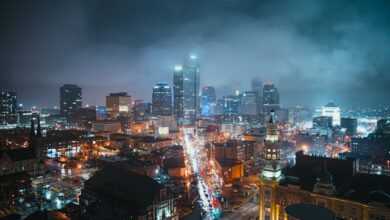Nigerian Men Clothing: Traditoanl Outfits, Wears & Style

African culture is a fortune. In numerous African nations, customary dresses are an impression of the style of a whole group. These men in customary dress show that custom is an additional incentive for Africa.
YORUBA People
Agbada
The abgaba is a four piece of clothing worn by Yoruba men. It comprises of a huge baggy external dress (awosoke), a clothing coat (awotele) and drawstring pants (sokoto) and a conventional cap. The external coat is separated in three sections: a focal rectangular piece weaved from front to back and with an opening for the neck (orun) and a huge pocket on the left side called “apo”.
Also Read: Traditional African Clothing: A Cultural Heritage of Africans
BUBA SOKOTO
Buba and Sokoto are customary garments that are essential for the agbada. The two most famous jeans are the sooro, tight jeans, the length of the thin lower leg, and the kembe, free jeans, to wide stocking, which arrives at somewhat underneath the knee, however not to the extent that the lower leg, without covering the shoes.
Igbo People
Senator STYLE
Entirely chic, Senatorstyle is a rich, alluring and agreeable outfit. It comprises of a long top or a shirt that spans nearly knees and jeans.
This outfit is extremely normal among individuals of Igbo beginning and the Niger Delta. However, with its prosperity, this piece of clothing is worn by numerous Nigerians, paying little mind to identity.
Top has different examples and decorations around the neck, chest or paunch. The jeans are straightforward and basic. The Senator style for men is typically finished with a matching cap. They are much of the time accessible in dark, blue or dim. Yet, red and white are among the most famous.
ATIKU
Atiku is a complex customary texture well known with Nigerians. This piece of clothing with a firm and fine surface is accessible in one tone and in one material. You can pick between white, dark, cream, naval force blue, sky blue and brown. An inclination for colorful textures conflicts with the’Atiku ‘texture.
ISIAGU
Exceptionally well known in eastern Nigeria, the Isiagu is a customary Igbo individual shirt that seems to be Dashiki.
This outfit is short or long-sleeved with gold fastens flawlessly and stylishly associated by a chain. It is worn with pants, a cape, and a red cap.
It is worn during a wedding, social celebration, or significant occasion.
Traditional Wrapper
Conventional bundling is a gender-neutral outfit generally sewn by weavers. The scarf is tied so that it arrives at the lower legs and the Isiagu is worn with it.
It is worn during far-reaching developments in the Igbo culture.
Hausa/Kanuri/Fulani
The Hausa, Kanuri and Fulani people groups possess northern Nigeria. They have comparative societies, garments and dialects. It is the biggest gathering in Nigeria and is the biggest ethnic gathering. Men dress with a Caftan or Jalabiya.
Also Read: Lagos, Nigeria – The Future Fashion Capital in the World
JALABIYA
Jalabiya is an assertion of style. It’s a long conventional gender neutral dress. It begins with the Bedouin people. There are various styles of Jalabiya. From moderate garments to those luxuriously weaved.
CAFTAN
The kaftan is a long and free piece of clothing, with long or long sleeves, without a collar or hood. It is an extremely well-known dress.
DASHIKI

Dashiki is a free and brilliant sleeveless shirt from West Africa.
ANKARA STYLE
Ankara is a brilliant 100 percent cotton African material with ancestral themes, which has a few names. It is nicknamed “Wax”, “Ankara prints”, “African prints”, “African wax prints” “Holland wax” and “Dutch wax”.





